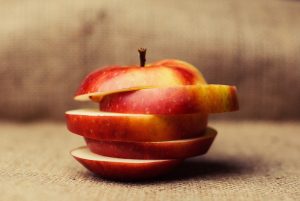When Should I Consult My Dentist About My Nutritional Status?
 Always ask your dentist if you’re not sure how your nutrition (diet) may affect your oral health. Conditions such as tooth loss, pain or joint dysfunction can impair chewing and are often found in elderly people, those on restrictive diets and those who are undergoing medical treatment. People experiencing these problems may be too isolated or weakened to eat nutritionally balanced meals at a time when it is particularly critical. Talk to your dental health professional about what you can do for yourself or someone you know in these circumstances.
Always ask your dentist if you’re not sure how your nutrition (diet) may affect your oral health. Conditions such as tooth loss, pain or joint dysfunction can impair chewing and are often found in elderly people, those on restrictive diets and those who are undergoing medical treatment. People experiencing these problems may be too isolated or weakened to eat nutritionally balanced meals at a time when it is particularly critical. Talk to your dental health professional about what you can do for yourself or someone you know in these circumstances.
Foods that cling to your teeth promote tooth decay. So when you snack, avoid soft, sweet, sticky foods such as cakes, candy, and dried fruits. Instead, choose dentally healthy foods such as nuts, raw vegetables, plain yogurt, cheese and sugarless gum or candy.
When you eat fermentable carbohydrates, such as crackers, cookies, and chips, eat them as part of your meal, instead of by themselves. Combinations of foods neutralize acids in the mouth and inhibit tooth decay. For example, enjoy cheese with your crackers. Your snack will be just as satisfying and better for your dental health. One caution: malnutrition (bad nutrition) can result from too much nourishment as easily as too little. Each time you eat, you create an environment for oral bacteria to develop. Additionally, studies are showing that dental disease is just as related to overeating as heart disease, obesity, diabetes, and hypertension. So make a habit of eating too much of just about anything, too frequently, should be avoided.
If you, your family or friends need dental care, we would be honored to provide you with state-of-the-art dental care in our modern dental practice. Refer someone you love to someone you trust!
Presented as a service to the community by Doctors Hoover and Yanda,
39 Milford Drive, Hudson, Ohio 44236. 330-650-0360. www.drshooverandyanda.com
